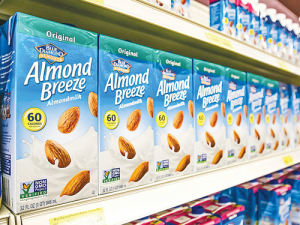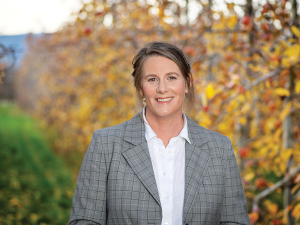A lot of people in the dairy sector are getting excited about the US Food and Drug Administration (FDA) considering how it will enforce the definition of milk on beverage companies that use the word on products not derived from a cow or any other animal.
As in Australia, FDA regulations already specify that milk is a lacteal or mammary secretion of milking animals. The issue is these standards of identity haven’t been enforced, and FDA commissioner Scott Gottlieb is considering whether they should be.
“An almond doesn’t lactate,” has been the widely reported quote from Gottlieb.
As in Australia, the US dairy sector is keen for these standards of identity to be enforced for milk and other dairy terms. The National Milk Producers Federation (NMPF) believes using dairy terms including ‘milk’ for plant-based alternatives is misleading consumers.
While no one would argue that consumers encountering a pack of soy ‘milk’ are confused about whether the product comes from a cow, they could be confused about the nutritional value offered. While plant-based ‘milks’ are alternatives for usage, they are not exact substitutes for nutrition.
To support its claims, the NMPF surveyed 244 plant-based beverages from the Washington DC area and found that none delivered equivalent nutrition to real milk.
One global dairy processor – Danone – has come out in favour of the status quo on product names. It says that dairy and plant-based products are clearly labelled with nutrition facts so people can choose the one that suits their dietary needs and preferences.
It is galling for many in the dairy industry, and farmers in particular, that plant-based competitors use the words milk and cheese to convey – to most consumers -- an aura of health, nurturing and familiarity, particularly as these alternatives continue to erode the market for the real thing.
In the US, the dairy industry has an unlikely ally in the fight for milk. PETA also thinks plant-based beverages deserve to be distinguished from ‘udder secretions’. To PETA, milk is a “four letter word”: nothing gets past these people.
A new Morning Consult/Politico poll in the US suggests some consumer support for enforcing the definition of milk, with 46% of surveyed adults saying the term shouldn’t be used to describe non-dairy beverages. The poll of 2203 people found support for not using milk on plant-based beverages was highest in the 65-plus age group at 66%, but lowest in the 18 - 29 grouping at 39%. Which group do you think is more likely to buy plant-based beverages?
Between 2012 and 2017, US sales of non-dairy ‘milk’ increased 61% in the US to an estimated US$2.11 billion, says Mintel, while dairy milk sales have fallen 9%. The Mintel researchers found one in five US consumers were consuming less dairy for health reasons – a concern for an industry that has positioned itself on a nutrition platform. The other interesting finding was that 90% of plant-based ‘milk’ consumers also buy dairy, so choices may not be quite as binary as we would imagine.
It’s debatable whether removing the word ‘milk’ from these products would prevent the march of plant-based beverages. As well as health concerns, consumers are turning to plant-based beverages that they believe are more ethical, better for the environment and because of lactose intolerance – whether real or perceived.
Innovation is another driver: while almond, coconut and soy remain the most popular milk alternatives, hardly a month goes by before something else gets ‘milked’ – pecan, quinoa, hazelnut and flax are recent examples.
Some of the perceptions of the environmental credentials of plant-based alternatives are questionable – especially almonds – and could be challenged.
Dairy also has to keep its own sustainability house in order, and tell the story effectively. The ethical issues for hard-core vegan types will never be addressed. Milk has been a staple for centuries because of its health benefits – a nutritional package designed by nature. This often gets lost with the waves of new ‘superfoods’ on the block.
Innovation is seriously lacking for a category taken for granted and under siege. Innovation – not regulation of the name -- will keep ‘real milk’ relevant for many consumers now and in future. Even if this battle is won, dairy needs to stay focused on the war.
• Joanne Bills is a director of Australian food consultancy FreshAgenda.









